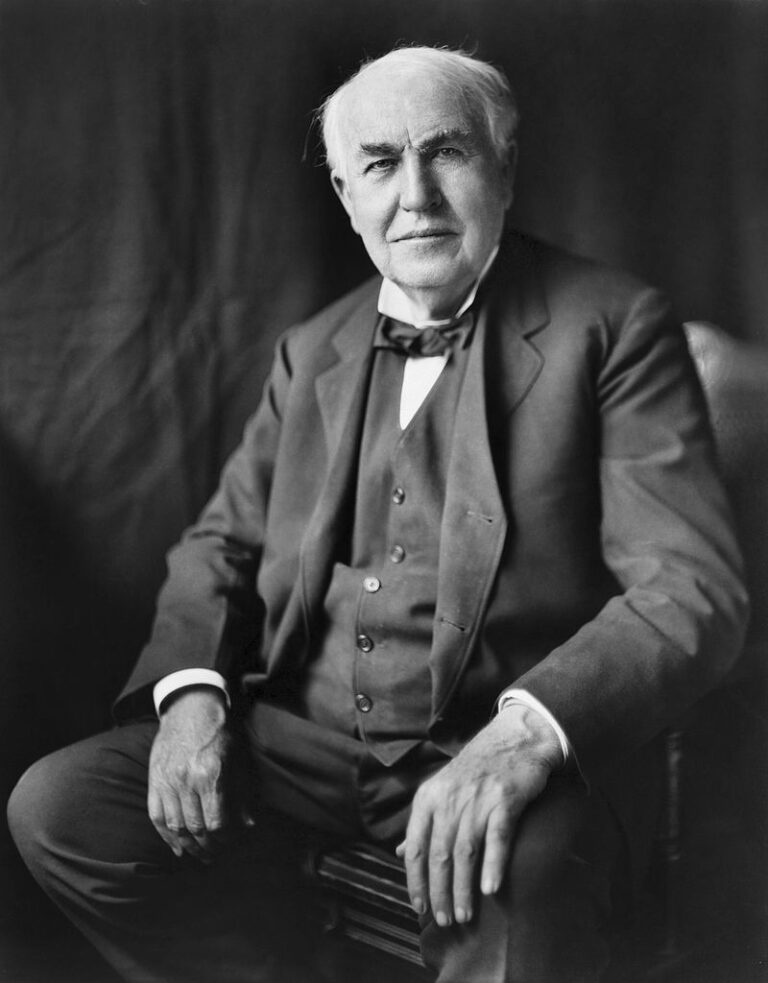Lighting the Way: The Importance of Supporting Other People’s Candles
The Power of Leadership that Supports and Empowers Others
Importance of leadership in today’s world
In today’s rapidly changing world, leadership has become more critical than ever before. Effective leaders are essential for organizations to navigate through the challenges of globalization, technological advancement, and social change. A good leader must possess a unique set of skills, including the ability to inspire and motivate people, think strategically, and adapt to changing circumstances.
However, being a leader is not just about holding a position of power or authority. Leadership is a complex process that involves influencing and guiding others towards a common goal. It requires a deep understanding of human behavior, communication, and decision-making, among other things.
The quote, “Extinguishing the light of other people’s candles does not make yours burn brighter,” by Mike Simmonds, highlights the importance of supporting and nurturing others rather than tearing them down. The metaphor of a candle represents the unique skills and abilities that each person possesses. When we “extinguish” someone else’s “candle,” we are essentially preventing them from shining and reaching their full potential.
On the other hand, when we support and encourage others, we are not only helping them to grow and succeed, but we are also creating an environment of positivity and collaboration. This kind of environment is essential for fostering innovation, creativity, and achieving organizational goals.
The quote, “Extinguishing the light of other people’s candles does not make yours burn brighter,” is a powerful reminder of the importance of leadership that focuses on supporting and empowering others. In this article, we will explore the concept of “extinguishing the light of other people’s candles,” its negative impact on personal and professional relationships, the benefits of supporting others, and the qualities of a leader who supports others. Additionally, we will provide strategies for leaders to support and empower others to achieve their full potential.
Understanding the Concept of “Extinguishing the Light of Other People’s Candles”
Definition of the concept
“Extinguishing the light of other people’s candles” refers to the behavior of intentionally or unintentionally undermining others’ talents, ideas, or abilities. This behavior can take many forms, such as belittling, criticizing, or stealing credit for someone else’s work.
Why people engage in such behavior
People may engage in this behavior for various reasons. One reason is insecurity. When individuals feel insecure about their own abilities or accomplishments, they may try to make others feel inferior to boost their own self-esteem.
Another reason is competition. In highly competitive environments, individuals may see others as threats to their success and, therefore, try to sabotage them.
Consequences of such behavior
The consequences of extinguishing other people’s candles can be severe. It can damage personal relationships, create a toxic work environment, and hinder creativity and innovation. When people feel unsupported or undervalued, they may become demotivated and disengaged, leading to decreased productivity and morale.
Moreover, extinguishing other people’s candles can damage team dynamics. It can create a culture of fear and mistrust, where team members are more focused on protecting themselves than working collaboratively towards a common goal. This behavior can also discourage risk-taking and experimentation, which are essential for innovation and growth.
In sum, extinguishing the light of other people’s candles can have far-reaching and negative consequences, both for individuals and organizations. It is a destructive behavior that should be avoided at all costs.
The Negative Impact of Extinguishing Other People’s Candles
Effects on personal relationships
Extinguishing other people’s candles can have a devastating effect on personal relationships. When individuals are constantly criticized or belittled, it can erode their self-confidence and sense of self-worth. This can lead to feelings of resentment, anger, and frustration, which can strain personal relationships.
Moreover, when individuals feel unsupported or undervalued by their loved ones, it can damage their sense of belonging and connection. This can lead to feelings of isolation and loneliness, which can have a negative impact on mental health.
Effects on professional relationships
In the workplace, extinguishing other people’s candles can create a toxic work environment. When individuals are constantly criticized or belittled, it can damage their confidence and motivation. This can lead to decreased productivity and morale, which can ultimately harm the organization’s bottom line.
Moreover, when individuals are pitted against each other in a competitive environment, it can damage team dynamics. It can create an atmosphere of mistrust, where team members are more focused on protecting themselves than working collaboratively towards a common goal.
Effects on teamwork
Extinguishing other people’s candles can also hinder creativity and innovation. When individuals are constantly criticized or belittled, they may become hesitant to share their ideas or take risks. This can lead to a lack of creativity and innovation, which can ultimately harm the organization’s ability to compete in a rapidly changing world.
Moreover, when individuals are pitted against each other in a competitive environment, it can hinder teamwork. It can create an atmosphere of mistrust, where team members are more focused on protecting themselves than working collaboratively towards a common goal. This behavior can also discourage risk-taking and experimentation, which are essential for innovation and growth.
In sum, extinguishing the light of other people’s candles can have far-reaching and negative consequences for personal and professional relationships, team dynamics, and organizational success. It is a destructive behavior that should be avoided at all costs. Leaders must recognize the importance of supporting and empowering others to achieve their full potential.
The Positive Impact of Supporting Other People’s Candles
Building strong relationships
Supporting other people’s candles can have a positive impact on personal and professional relationships. When individuals feel supported and valued by their loved ones or colleagues, it can strengthen their sense of belonging and connection. This can lead to stronger personal relationships and a more cohesive team dynamic in the workplace.
Moreover, when individuals feel that their ideas and contributions are valued, they are more likely to be engaged and motivated. This can lead to increased productivity and morale, which can ultimately benefit the organization’s bottom line.
Fostering collaboration
Supporting other people’s candles can also foster collaboration. When individuals are encouraged to share their ideas and work together towards a common goal, it can lead to increased creativity and innovation. This is because different perspectives and experiences can lead to novel ideas and solutions.
Moreover, when individuals are supported and empowered, they are more likely to take risks and try new things. This can lead to breakthroughs and advancements that would not have been possible otherwise.
Encouraging creativity and innovation
Finally, supporting other people’s candles can encourage creativity and innovation. When individuals are encouraged to share their ideas and are given the support they need to pursue them, it can lead to new and exciting discoveries.
Moreover, when individuals are supported and empowered, they are more likely to take risks and try new things. This can lead to breakthroughs and advancements that would not have been possible otherwise.
Supporting other people’s candles can have a positive impact on personal and professional relationships, team dynamics, and organizational success. It is a behavior that leaders should strive to cultivate in themselves and their teams. By nurturing and empowering others, leaders can create an environment of positivity and collaboration, which can lead to creativity, innovation, and growth.
The Qualities of a Leader Who Supports Other People’s Candles
Empathy
One of the most important qualities of a leader who supports other people’s candles is empathy. Empathy is the ability to understand and share the feelings of others. When leaders can put themselves in their team members’ shoes, they can better understand their needs, challenges, and motivations. This understanding can help leaders to provide the support and guidance their team members need to thrive.
Empathetic leaders also create a culture of trust and respect. When team members feel that their leaders care about them as individuals, they are more likely to be engaged and motivated. This can lead to increased productivity, creativity, and innovation.
Humility
Another important quality of a leader who supports other people’s candles is humility. Humility is the ability to recognize one’s own limitations and to value the contributions of others. When leaders are humble, they are more likely to recognize the unique talents and abilities of their team members. This can lead to a more inclusive and collaborative work environment.
Moreover, humble leaders are more open to feedback and suggestions from their team members. This can lead to continuous improvement and growth, both for the leader and the team as a whole.
Emotional intelligence
Emotional intelligence is also an essential quality of a leader who supports other people’s candles. Emotional intelligence is the ability to understand and manage one’s own emotions and the emotions of others. When leaders have high emotional intelligence, they can better understand the needs and motivations of their team members. This understanding can help leaders to provide the support and guidance their team members need to thrive.
Moreover, leaders with high emotional intelligence are more likely to create a culture of positivity and collaboration. They are able to manage conflicts effectively and to create an environment where team members feel valued and supported.
Leaders who support other people’s candles possess qualities such as empathy, humility, and emotional intelligence. These qualities enable them to create a culture of trust, respect, and collaboration, which can lead to increased productivity, creativity, and innovation.
Strategies for Supporting Other People’s Candles
Recognizing and valuing others’ contributions
One strategy for supporting other people’s candles is to recognize and value their contributions. Leaders can do this by giving credit where credit is due and publicly acknowledging the contributions of their team members. This recognition can be in the form of verbal praise or rewards and incentives.
Moreover, leaders can create a culture where all contributions are valued, regardless of their size or significance. When team members feel that their contributions are recognized and valued, they are more likely to be engaged and motivated, which can lead to increased productivity and innovation.
Providing opportunities for growth and development
Another strategy for supporting other people’s candles is to provide opportunities for growth and development. Leaders can do this by providing training, mentoring, or coaching. These opportunities can help team members to develop new skills and competencies, which can lead to increased confidence and motivation.
Moreover, leaders can provide opportunities for team members to take on new challenges and responsibilities. This can help them to develop their skills and to gain valuable experience, which can lead to career advancement and growth.
Encouraging collaboration and teamwork
Finally, leaders can support other people’s candles by encouraging collaboration and teamwork. Leaders can do this by creating opportunities for team members to work together towards a common goal. This can be in the form of team projects, brainstorming sessions, or cross-functional teams.
Moreover, leaders can create an environment where team members feel comfortable sharing their ideas and collaborating with others. This can be done by fostering a culture of trust, respect, and open communication. When team members feel supported and empowered to work together, it can lead to increased creativity and innovation.
Strategies for supporting other people’s candles include recognizing and valuing others’ contributions, providing opportunities for growth and development, and encouraging collaboration and teamwork. Leaders who implement these strategies can create a culture of positivity and collaboration, which can lead to increased productivity, creativity, and innovation.
Fostering Growth and Innovation through Supporting Other People’s Candles
The quote, “Extinguishing the light of other people’s candles does not make yours burn brighter,” is a powerful reminder of the importance of leadership that focuses on supporting and empowering others. In a world that is rapidly changing, effective leaders are essential for organizations to navigate through the challenges of globalization, technological advancement, and social change.
Leaders who support other people’s candles possess qualities such as empathy, humility, and emotional intelligence. They recognize the importance of recognizing and valuing others’ contributions, providing opportunities for growth and development, and encouraging collaboration and teamwork. These strategies can help leaders to create a culture of positivity and collaboration, which can lead to increased productivity, creativity, and innovation.
Moreover, leaders who support other people’s candles can have a positive impact on personal and professional relationships. When individuals feel supported and valued, it can strengthen their sense of belonging and connection. This can lead to stronger personal relationships and a more cohesive team dynamic in the workplace.
In conclusion, the quote, “Extinguishing the light of other people’s candles does not make yours burn brighter,” highlights the importance of leadership that supports and nurtures others. Leaders who possess qualities such as empathy, humility, and emotional intelligence can create a culture of trust, respect, and collaboration, which can lead to increased productivity, creativity, and innovation. By recognizing and valuing others’ contributions, providing opportunities for growth and development, and encouraging collaboration and teamwork, leaders can create an environment of positivity and collaboration that benefits everyone.






